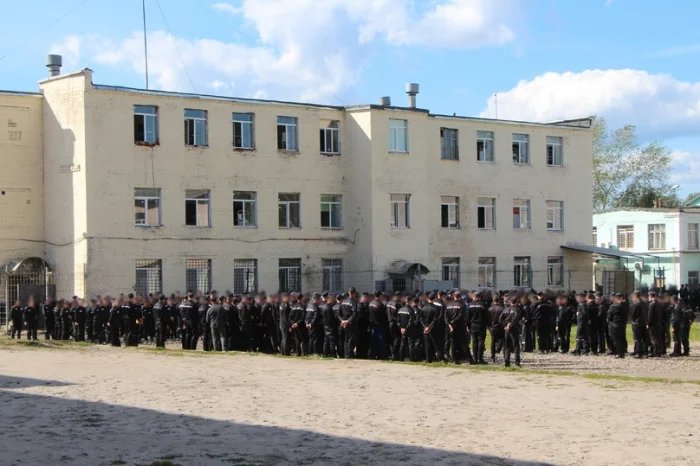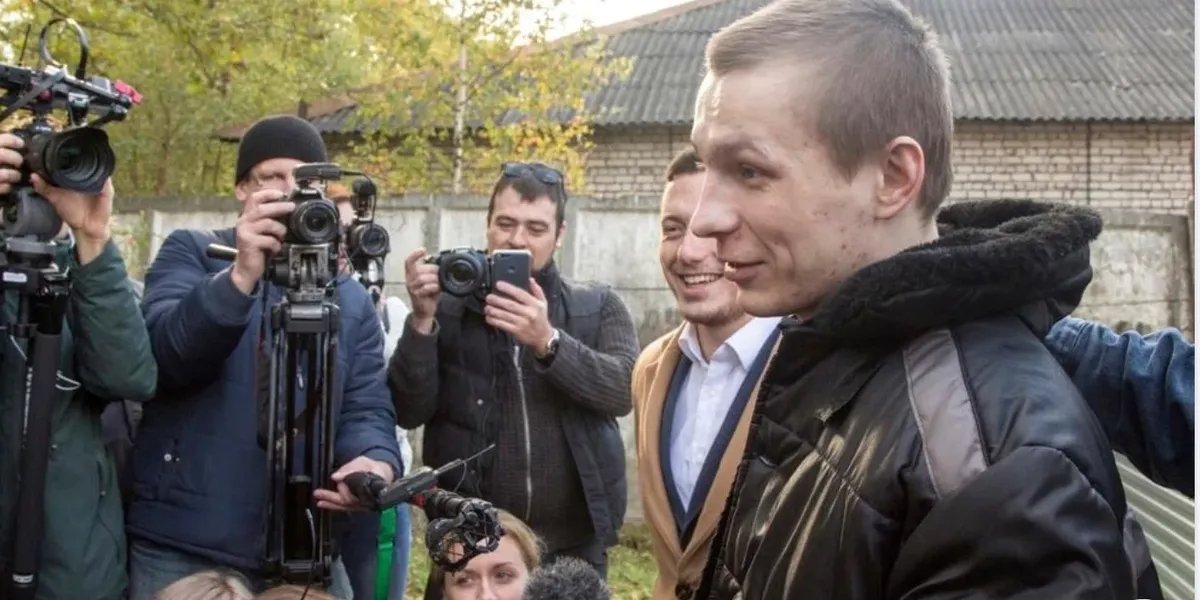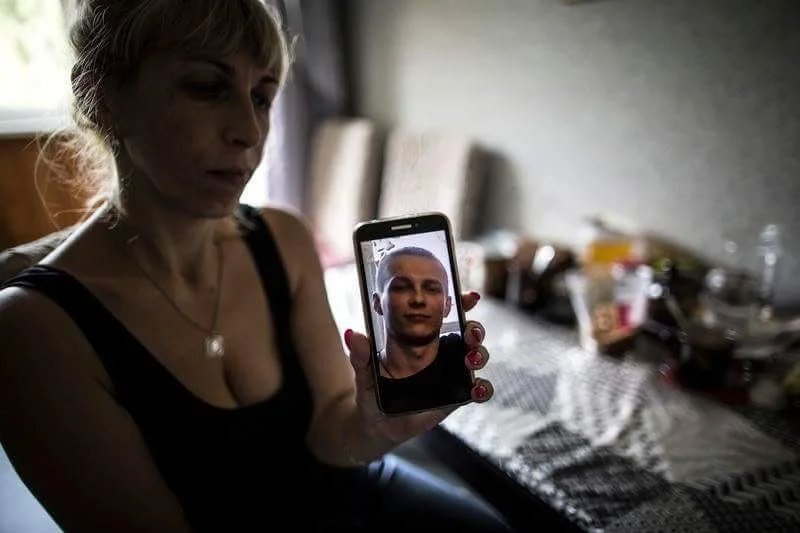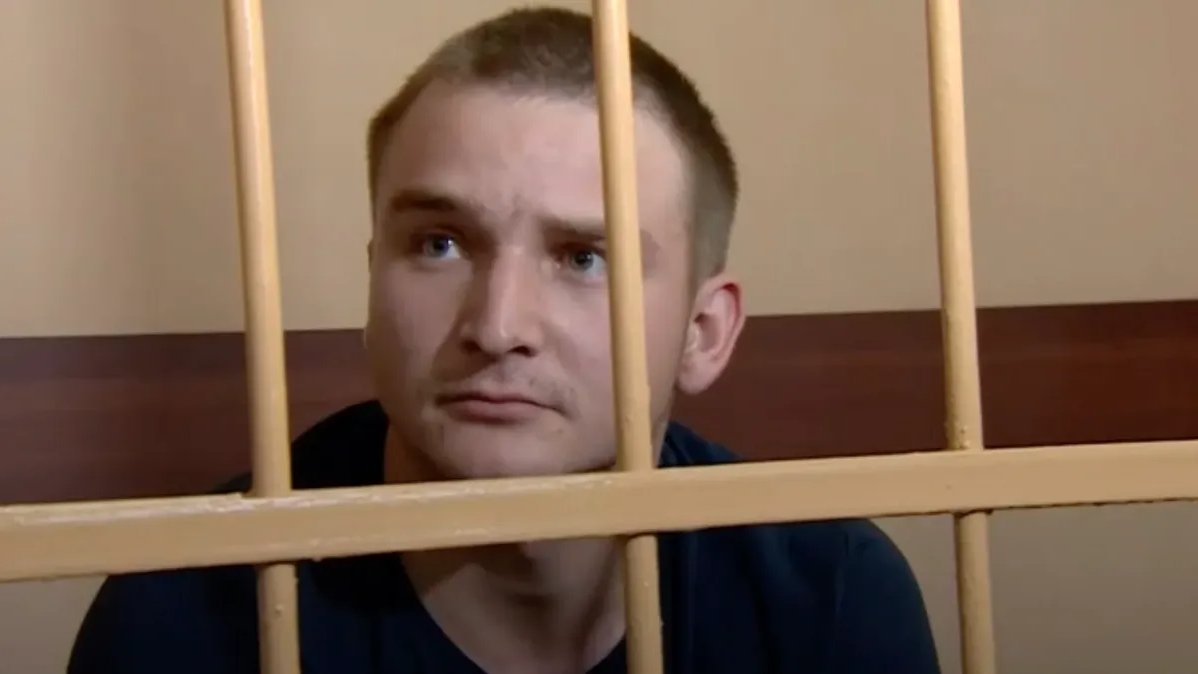865: this is the exact number of times Yevgeny Makarov, an inmate in Yaroslavl’s prison, got punched, kicked, or struck with a truncheon in 2017. This exact number was determined by Russia’s human rights activists and confirmed during the official investigation and even in trial. They simply could not ignore this horrific figure. The prison guards recorded the beating of Makarov with a dashcam, unaware that somebody would be watching this video later. This recording was the main evidence in Makarov’s lawsuit against Russia’s Federal Penal Correction Service.
The guards punched him and struck him with truncheons, they would beat up his legs and back. Makarov would faint every now and then, so they would bring him back to consciousness and continue their violence.
Makarov was 25 years old back then. He survived, was released on parole, and sued the offenders, becoming a victim of one of the most notable cases regarding prison torture in modern-day Russia. Yevgeny Makarov passed away two weeks ago. He was only 29 years of age, and even though he died a free man, his relatives are certain that it was the prison that destroyed his life.
Read Novaya Gazeta.Europe’s story about Yevgeny Makarov, the man who challenged Russia’s prison torture routine.
A trouble seeker
Yevgeny Makarov was born in 1993 in Yaroslavl, a city in central Russia, and raised by a single mother.
He used to be a troubled teenager. He was put on probation for theft when he was only 17 years old and was sentenced to 7 years and six months behind bars two years later for serious bodily assault — he stabbed a man who was harassing his girlfriend. This is how Makarov ended up in prison. He served his term in the Yaroslavl region, not far from his home. Yevgeny was forced to come of age incarcerated. As people of the Public Verdict Foundation, a human rights organisation which provided Makarov with legal assistance, recall, during the age between 19 and 25, he saw nothing but an endless string of violence the prison guards used against inmates.
Yevgeny’s stubborn temper made his time in the Yaroslavl penitentiary a living hell. He used to be what inmates call "a trouble seeker": he never cooperated with the prison authorities, never tolerated lawlessness and torture, and was always quick with a comeback. Everyone who knew him describe him as "the rebellious one." However, Makarov was a just and down-to-earth person, and a man of principle.
The prison administration was discontent with these traits of his and did its best to obliterate them by means which sane people undoubtedly describe as torture.
Makarov has had confrontations with the guards since the very moment he arrived. His personal file was marked with hundreds of warnings, such as: sleeping outside dedicated hours, impolite conduct with a prison guard, improper clothing, refusal to provide explanatory statements in written form, and so on.
Despite having no degree at all, let alone having any legal background, Makarov knew his rights well and did his best to protect them. He also knew how to file complaints and was not afraid to do so.
As the human rights activists found out later, Makarov was getting beaten up every now and then and spent long weeks in solitary cells for various petty offences, such as those listed above.

Yaroslavl’s prison. Photo by fsin-atlas.ru
Makarov and Bolotnaya Square prisoners
Yaroslavl’s penitentiary had become known nationwide earlier than Makarov’s torture tape was published. The reason behind this is that the prisoners of the Bolotnaya Square case were sent there around 2016 and 2017. On 6 May 2012, the day before Putin’s inauguration as President for his third term, a huge crowd of anti-Putin protesters gathered in Moscow’s Bolotnaya square for a rally which resulted in clashes with the police. The country’s Investigative Committee soon filed criminal charges against over 30 individuals, including civil rights activists and ordinary protesters, for “violent unrest” and “violence against police”; most of the arrested protesters were sentenced to prison terms. Ivan Nepomnyashchikh and Dmitry Ishevsky, the Bolotnaya protesters, befriended Yevgeny Makarov and Ruslan Vakhapov, another prisoner, as they arrived at the Yaroslavl penitentiary. Vakhapov’s case was discussed in Russia’s media a lot at the time: he was declared a sex offender by a court ruling for relieving himself on the curb of an interurban road, which was accidentally witnessed by minors. The four started filing complaints one after another in their attempt to put torture to an end. This resulted in the information on what was happening in the Yaroslavl penitentiary leaking outside. For instance, the Public Verdict Foundation found out that Spetsnaz units visited the prison regularly to beat up all prisoners “for educational purposes”. The organisation also revealed that those held in solitary cells were normally being fed nothing but water and bread for weeks, and were handed out unusable pierced bowls and spoons on those rare occasions when normal meals were served.
“We started working on this issue, and soon disposable cutlery was put to use there,” says Irina Biryukova, a human rights activist. “Prisoners in solitary cells had not had a single normal meal for over ten years, and they did not believe we could succeed. Makarov made an enormous contribution to this, as he and his friends kept filing complaints.”
Obviously, they paid a heavy price for their activities.
Vakhapov, Nepomnyashchikh and Makarov were held in solitary cells in April 2017 when a Spetsnaz unit arrived at the facility. They were beaten up and tortured in what the prison administration considered a “precaution measure”. Irina Biryukova and Yakov Iontsev, a lawyer, spent several days trying to get inside the facility to document the injuries, and they succeeded. The inmates filed complaints to Russia’s law enforcement bodies, and the lawyers addressed the Strasbourg Court on its Rule 39 which allows applicants to request and obtain interim measures in case of an imminent risk of irreparable damage.
The court reacted fast, forcing Russia to investigate the violent act. However, the prosecutor’s investigation fell flat as Russia informed the Strasbourg Court that it used force against the inmates validly, claiming that the three “offered resistance to the prison guards.”
It was just a couple of months before this exact prison became notorious for what turned out to be the most sensational case regarding torture in Russia’s prisons.
Crucifix atop the table
Makarov had another confrontation with the prison guards on 29 June 2017. As he told the Public Verdict Foundation, the guard searched his solitary cell as Yevgeny was out on a scheduled walk, and trampled a letter from Makarov’s mother which Yevgeny left inside a Bible as he exited the cell. Makarov had an argument with the guards and used profanities.
For this, he was escorted to an “educational classroom” and tortured; one of the guards was filming it.
The Public Verdict Foundation then restored the course of events, revealing the names of the torturers. That is, doing the job Russia’s Prosecutor’s Office and the Investigative Committee are responsible for. The latter had been refusing to initiate a criminal procedure for almost a year and eventually did this when the recording could not be longer ignored: Novaya Gazeta published the video, and many other independent media shared it.
But let us get back to the “educational classroom” at Yaroslavl’s prison. The video itself is so appalling that very few would actually be able to watch it until the end. The following is the description of what happens in the video.
The “classroom” is crowded with people; most of them wear grey camouflage clothes. Those are the prison guards. Yevgeny Makarov is atop a table in a crucified position, several men hold him by his limbs. Others strike their truncheons against his legs or punch him, sometimes pouring cold water on his feet and head. Halfway through the recording, they tug down his trousers and underpants. Makarov groans and begs for mercy.
At some point one of the guards addresses him: “Why should we stop this? You called me a ginger bitch, didn’t you? No mercy for you then! Have I ever called you this way? Have I ever called you a ****? You told you would **** my arse, didn’t you? Or am I making this up? Has this happened, you tell me!?” Then Makarov, who had been dragged from atop the table by the time, replies with “yes, I said something like this.” After that, the guards continue beating him up, saying: “We have only started this, it’s okay.” As one of the guards marks that Makarov’s leg has become swollen, another guard says: “So what, my hands are starting to swell, too!”
Makarov loses consciousness several times throughout the video.
The recording ends at 9 minutes and something, when the guards put the naked man back atop the table.
The trial
The Zavolzhsky court in Yaroslavl hosted the trial of the torturers in 2019-2020.
A total of 14 individuals were accused, including two of the top brass. 10 of them were held in pre-trial detention centres, and the rest were put under house arrest. This was a record-breaking case: never before in Russia’s history have so many members of prison staff appeared in the dock at the same time.
Makarov was the victim in the trial and was granted state protection.
The relatives of some of the accused prison guards acted aggressively towards Makarov, his lawyer
Irina Biryukova and the Novaya Gazeta reporters who were present at the courthouse. Biryukova was forced to leave Russia for a short period as she received numerous threats.
A total of 11 former prison guards who tortured Makarov were handed sentences from 3 to 4 years in prison. Sergey Yefremov, the deputy supervisor at the prison’s operating department, had his case considered in a special procedure and was sentenced to 4 years behind bars. However, the prison’s administration, namely warden Dmitry Nikolaev and his deputy Igit Mikhaylov, who authorised the years-long torture routine, were found not guilty. The Public Verdict Foundation did their best to appeal the decision, but their efforts were in vain.

Yevgeny Makarov. Photo from Facebook
Release and death
As the investigation of Makarov’s case progressed, more and more evidence was found that confirmed the prison’s torture routine. Many other convicts asked the Public Verdict Foundation for help. Most of them, however, revoked their applications “under the influence of external force”. Makarov was the only one who did not give up: he went all the way until the torturers were punished and was set free in October 2018, two months before his scheduled release, as the court satisfied his parole motion.
“Thank you for your support,” Makarov said to his lawyers and reporters as he walked out of the prison gate. “Thank you for being concerned about the horrific system of slavery they set up in here.”
The court had assigned a 3-year probation term for Makarov after he got released.
He was 25 years old then, and got lost in the free world, unsurprisingly. Unfortunately, his future was predetermined by his prison experience.
Yevgeny did not manage to start his life with a clean slate, become socialised, start a family, or find a permanent job. He also did not file a lawsuit against Russia’s Federal Penal Correction Service to receive a monetary compensation for what he suffered in prison. Makarov’s friends say he led an unhealthy lifestyle. In November 2020, he stole two bikes from a villager in Lipovtsy, was caught, pleaded guilty and was handed another suspended sentence.
He only knew how to act in extreme situations like fighting for his rights in a torture prison. He simply did not know how one can live a normal life outside the prison walls.
Yevgeny Makarov died on 25 July 2022 in hospital of bilateral pneumonia which he did not notice soon enough.
“I will always remember him as a hotblooded, yet a truly just man,” says Irina Biryukova. “If he believed he was right, he could go all the way to prove it. If he believed someone else was wrong, he did his best to convince them they were mistaken. He always protected those who were weaker than him.
He was a kind man, but he took the wrong turn, unfortunately. A fine lad indeed.”

Tatyana, Yevgeny’s mother. Photo by the Public Verdict Foundation
The legacy of Makarov’s case
Today, Russia’s human rights activists, lawyers, and journalists who specialise in penal cases say that Makarov’s case proved that torture is everyday routine in Russia’s prisons. The country’s government finally decided to change something about the penal system once the video of Makarov’s torture was published.
Little did Makarov know what an impact his principles, persistency, and maximalism would make on the activists’ efforts to fight against Russia’s rotten penal system. “Makarov’s case started off a huge project on criminalising torture in Russia’s prisons,” the Public Verdict Foundation says. “The State Duma finally adopted an anti-torture law three months before Makarov died; although we find this law really sketchy.”
The law was indeed adopted by Russia’s parliament in June 2022, and it increased legal liability for people in public authority who torture others. Two articles of Russia’s Criminal Code were amended, namely the abuse of rank and forced confession. Using torture has become an aggravating circumstance. Those are extremely serious crimes now and are subject to up to 12 years of prison term. If someone is killed during torture, the accused will spend between 8 and 15 years behind bars.
However, Russia’s human rights activists criticise the law, calling the new wording “contradictory and sketchy”. “They offer us a logic that implies the following: there is some official power that might lead to torture. However, Russia’s law enforcers do not legally possess such powers, and this article, which I prefer to call artificial, is only used when there is no alternative,” the lawyers say as they demand a separate article on torture be added to the Criminal Code.
Делайте «Новую» вместе с нами!
В России введена военная цензура. Независимая журналистика под запретом. В этих условиях делать расследования из России и о России становится не просто сложнее, но и опаснее. Но мы продолжаем работу, потому что знаем, что наши читатели остаются свободными людьми. «Новая газета Европа» отчитывается только перед вами и зависит только от вас. Помогите нам оставаться антидотом от диктатуры — поддержите нас деньгами.
Нажимая кнопку «Поддержать», вы соглашаетесь с правилами обработки персональных данных.
Если вы захотите отписаться от регулярного пожертвования, напишите нам на почту: [email protected]
Если вы находитесь в России или имеете российское гражданство и собираетесь посещать страну, законы запрещают вам делать пожертвования «Новой-Европа».

